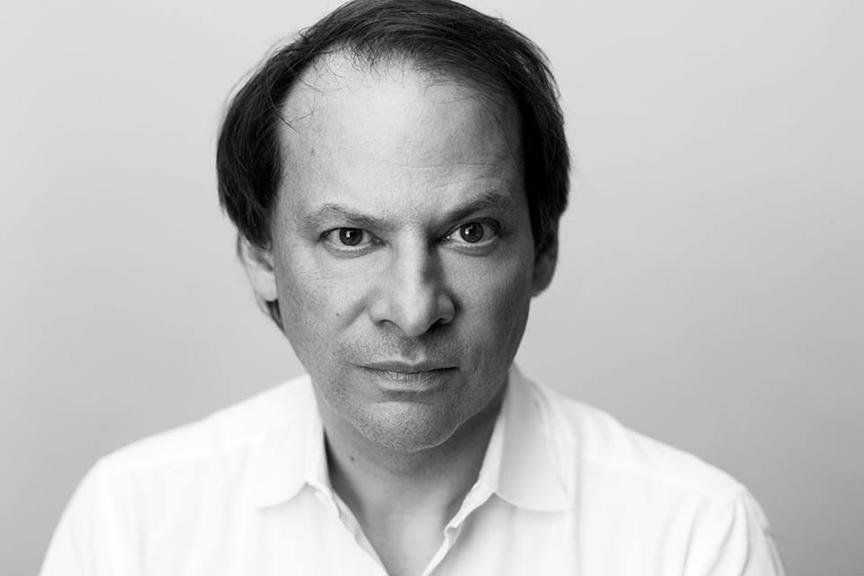In honor of French Week, the French and writing departments joined forces to bring well-respected author Adam Gopnik to campus last Wednesday for a keynote speech on Paris through the lens of literature.
Gopnik has been on the staff of The New Yorker for over thirty years. He began as an art critic for the esteemed magazine and is now known as an essayist, particularly for his work as the magazine’s Paris correspondent in the late 90s, as well as his nonfiction books about life in both Paris and New York. Although Gopnik is American-born, Canadian-raised and -educated, over the years he has become a sort of authority on all things French; he lived in Paris for several years and still travels there regularly.
I had the pleasure of attending a luncheon with Mr. Gopnik, along with Dr. Andre Colombat and five other students from the writing or French departments. The conversation was easy; Gopnik was interested in why we had chosen our courses of study and what we intended to pursue. He was curious about our tastes, asking me and the other writing major who our favorite contemporary author was. (He himself enjoys, among others, Annie Ernaux, his colleagues at The New Yorker, and, on the subject of Paris, Henry James’ and AJ Liebling’s work.)
The lunch was an insight into the daily life of a writer of his caliber. When discussing his working method, I think we were all amazed at the sheer amount of time Gopnik devotes to reading and writing. All of his essays and articles, of course, require research; often this involves reading several books, especially if he’s writing a sort of literary biography, like his F. Scott Fitzgerald one he discussed with us at lunch. Although Gopnik has an assistant, he insists on doing all the necessary reading himself. This, to him, isn’t always “work”: he described himself as always having been a reader and a lover of literature.
As much as he reads, it seems Gopnik writes even more. He advised the other writing student and I to train ourselves to write by viewing it as a physical exercise. He said that by simply setting aside the time to sit down and write—write whatever, it doesn’t have to be good; there’s editing for that—one develops the habit of writing and it becomes gradually easier. But, he said (at the advisement of his child psychologist sister) no strenuous mental activity should exceed four hours at one time; beyond four hours, our brains lose focus and become unproductive.
During the lunch we also discussed recent stories he’d been working on, among them a piece on Roma gypsies and one on the history of Parisian department stores. He also discussed more personal nonfiction he’s been working on, a collection of pieces with the theme of learning to do something. For instance, he wrote about learning to drive (Gopnik just got his license, at age 58, at the same time as his teenage son.) But, he explained, they’re all about more than just learning to do something. Each one of these essays—all good essays, for that matter—he explains have an object and a subject. So while the object of the essay may be learning to drive, the true subject of the essay, he said, is his relationship with his father.
In his keynote address, Gopnik discussed Paris through American eyes. There has always been a conversation between American literature and Paris, as Americans have long romanticized the city . For American audiences, Paris is an ideal, a place of good food and drink, a place of love a place that many people save up their whole life to get the chance to see. He explained the relationship Americans have with Paris is a storied one, and very different than the one, say, Brits might have with it. For Brits, Gopnik said, Paris is just a weekend trip; for Americans, though, it is a journey, a dream.
The French have similarly idealized America. American writers Nelson Algren and Jerome Charyn, for instance, didn’t achieve nearly as much fame in the states as they did in France, because French readers flocked to their gritty portrayal of an idealized America in a way American readers weren’t as interested in. It’s the act of capturing foreign cities in prose that has created an international dialogue between these vastly different countries and readers’ allure has perpetuated the success of these writers, Gopnik among them.
It was a pleasure to have Gopnik on campus, and certainly an honor to be invited to lunch with him. For those of you that missed his visit—or for those who are interested in learning more—find his work in The New Yorker or pick up one of his books, Paris to the Moon, Through the Children’s Gate, Angels and Ages, or his most recent, The Table Comes First.












































































































